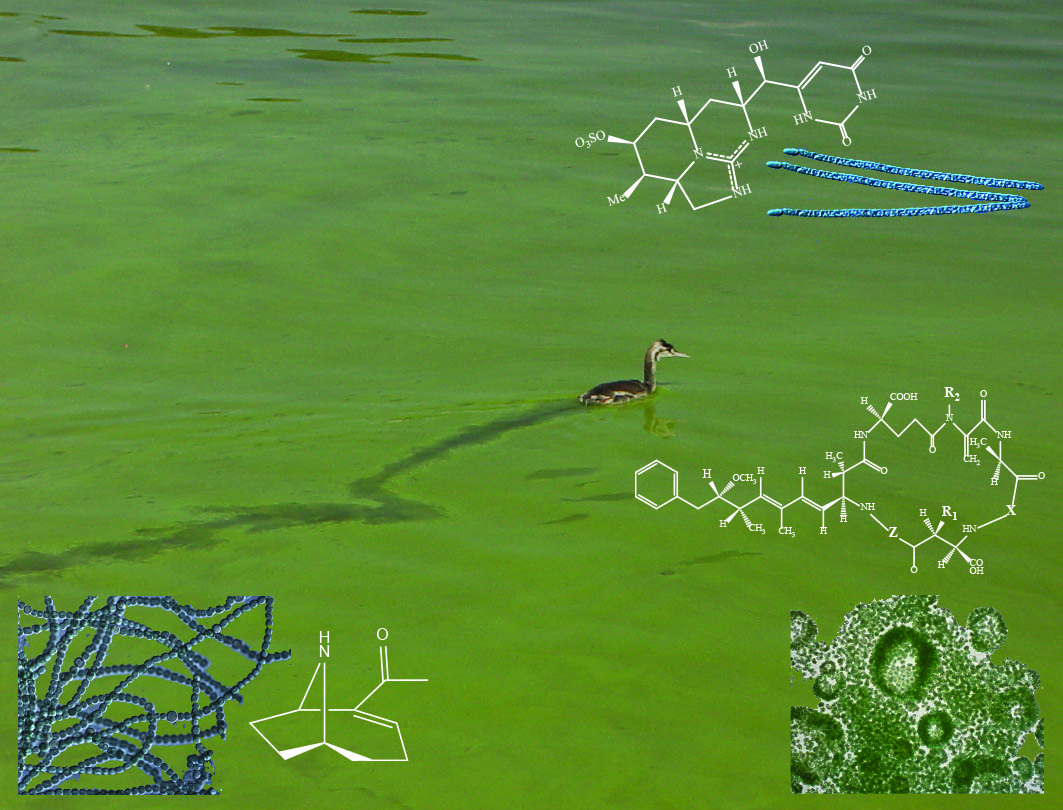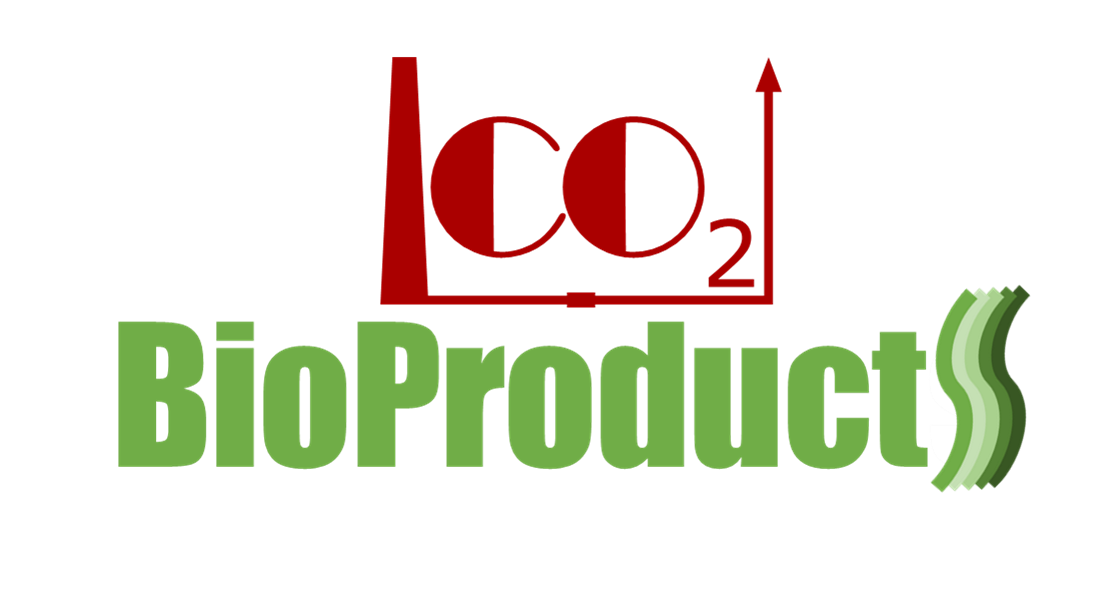Research
Our research interests cover a variety of topics within photosynthetic microorganisms’ diversity, ecotoxicology and evolution. Currently our research focus is on understanding the processes underlying bloom formation, secondary metabolites production and biogeography in cyanobacteria. My approach is to study these processes by investigating genetic diversity, population structure, dispersal, and local adaptation by classic and metagenomics research.

Together with my research group and collaborators we are currently focusing on:
I. Exploring the biodiversity (morphological, genetic) of photosynthetic organisms; mapping their diversity by classic and metagenomics research. Diversity and ecology of algal blooms.
II. Prokaryotic and eukaryotic photosynthetic organisms’ phylogeny.
III. Diversity of bioactive compounds (peptides, alkaloids) in cyanobacteria strains and natural populations, and in aquatic animals’ tissues. Effects in plants and cell cultures.
IV. Biodiversity informatics. Biodiversity databases.
Projects
Pilot cultivation of locally isolated Dunaliella strains for the production of β-carotene (PILOUS)
Cyanolab is happy to announce that the project PILOUS «Pilot cultivation of locally isolated Dunaliella strains for the production of β-carotene» is almost ready to launch. The project is founded by the GSRT in the context of the national action: «Special Actions "Aquaculture" - "Industrial Materials" - "Open Innovation in Culture"» of the Operational Program "Competitiveness, Entrepreneurship and Innovation" (EPAnEK).

Subject and Objectives of the Project
In the context of blue growth in Greece, the PILOUS project aims to implement an innovative, sustainable and holistic model of actions in the sectors of applied research and technological development towards the production of high added-value biotechnological products derived from the biomass of local species of the microalgae Dunaliella. The genus Dunaliella presents a cosmopolitan distribution, colonizing environments of high salinity, including the salt works of Greece. The flagellated cells of Dunaliella salina are the richest natural source of the beta-carotene, a substance that presents a growing commercial demand at a global level and a wide range of applications. In addition, β-carotene isolated from the biomass of Dunaliella strains, is one of the few microalgae-based ingredients that has been authorized by the European Food Safety Authority (EFSA) as a food ingredient.
Bioconversion of CO2 into high-added value bioproducts through sustainable microalgae cultivation processes
Anthropogenic greenhouse gases (GHG), of which carbon dioxide (CO2) accounts for up to 68% of total emissions, are responsible for global climate change. Microalgae and cyanobacteria can grow much faster than terrestrial plants, and their CO2-fixation efficiency is about 10-50 times better. Microalgal-CO2 fixation is environmentally sustainable when combined with other environmental-protecting processes, such as wastewater treatment or heavy metal removal.
CO2-BioProducts is a cross-disciplinary and multi-partner project, as six research and academic institutes and two industries; Greece’s largest power plant and a Spirulina farm, join alliances in order to cohere heavy metal removal and production of high-added value compounds.
CyanoLab AUTH is also on of the main partners of this project, with Phd students Urania Lortou and Manthos Panou testing and characterisng strains from the TAU-MAC culture collection for CO2 tollerance, under the supervision and co-ordination of Spyros Gkelis.
This research is co-financed by the Operational Program "Competitiveness, Internship, Innovation"
c o‐financed by the European Union and Greek national funds.
o‐financed by the European Union and Greek national funds.
New bioactive compounds with anticancer/antioxidant potential from sponge-associated cyanobacteria
Marine cyanobacteria are considered a rich source of bioactive natural products with promising anticancer and antioxidant activities. A significant number of compounds derived from cyanobacteria have been found to induce cytotoxicity in several cancer cell lines and currently, some of them are in different phases of clinical trials for the treatment of cancer. In the current project, we aim, for the first time, to investigate the potential of cytotoxicity of sponge-associated cyanobacteria extracts to several cancer cell lines, as well their antioxidant potential.
The project is implemented by Dr. Eleni Mavrogonatou, Dr. Kiraki-Sevasti Zervou and PhD student Despoina Konstantinou under the co-ordination of Spyros Gkelis.

This research is co-financed by the Operational Program "Human Resources Development, Education and Lifelong Learning" and by the European Union (European Social Fund) and Greek national funds.
Cyanobacteria-sponges symbiosis: diversity, co-evolution, secondary metabolites
![Strain TAU-MAC 1315, a possible new species and genus within Schizothrichaceae, isolated from the sponge Aplysina aerophoba. [images from Konstantinou et al. 2018 Plos One]](../attachments/Image/konstantinou_phd_projects_coverphoto_2.jpg?template=generic) Strain TAU-MAC 1315, a possible new species and genus within Schizothrichaceae, isolated from the sponge Aplysina aerophoba. [images from Konstantinou et al. 2018 Plos One]Sponge associated microbes have determined key roles in the evolutionary history and ecological success of sponges. Cyanobacterial symbionts live in association with more than 100 sponge species.
Strain TAU-MAC 1315, a possible new species and genus within Schizothrichaceae, isolated from the sponge Aplysina aerophoba. [images from Konstantinou et al. 2018 Plos One]Sponge associated microbes have determined key roles in the evolutionary history and ecological success of sponges. Cyanobacterial symbionts live in association with more than 100 sponge species.
The project is a PhD thesis elaborated by Despoina Konstantinou under the supervision of Spyros Gkelis, co-supervised by Prof. Eleni Voultsiadou (Department of Zoology, School of Biology, AUTH) and Dr. David Fewer (Department of Food and Environmental Sciences, University of Helsinki).
This study was supported by the General Secretariat for Research and Technology (GSRT) and the Hellenic Foundation for Research and Innovation (HFRI), grant number 938 to DK.
Volatile and odorous cyanobacteria metabolites
![Some T&O compound identified in cyanobacteria strains of the TAU-MAC collection. [image from Kaloudis et al. 2018, SETAC Europe 28th, Rome, Italy]](../attachments/Image/TO-chemical_2.PNG?template=generic)
Commercially cultivated Arthrospira spp. ('Spirulina')
This project deals with the genetic, chemical, and microbiological characterization of Arthrospira strains used in Spirulina biomass production plants. In collaboration with Dr. Anastasia Hiskia (Demokritos NCSR). Funding: ALGI AE company (under Aristotle University Research Committee).
Past Projects
- 7/2017-4/2018. “Flowing water quality monitoring based in the wider mining area of the company Hellenic Gold SA in Kassandra, Chalkidiki”. Funding: ENVECO SA. Coordinator: Spyros Gkelis
- 12/2014-5/2015. “Investigation of microorganism diversity of the Lake Koronia sediment with emphasis on toxic/ harmful species”. Funding: Lakes Volvi-Koronia Management Body. Coordinator: Spyros Gkelis
- 11/2014-6/2015. Coordinator in the «Isolation and diversity of Arthrospira (Spirulina) strains used in commercial cultures». Funding: ALGI AE company (under Aristotle University Research Committee). Coordinator: Spyros Gkelis
- 1/2014-1/2015. Coordinator in the “DIversity and Growth of cyanobacteria Arthrospira (Spirulina) used in commercial cultures [DIG-SPIRULINA]” Funded by the ALGI AE company (under Aristotle University Research Committee). Coordinator: Spyros Gkelis
- 1/2013-7/2015. “Water quality parameters monitoring” (Lake Karla). Funded by national funds and resources of the European Regional Development Fund under the NSRF 2007-2013 and especially Axis Priority 9 "Protecting the natural environment and biodiversity Operational Programme "Environment and Sustainable Development (EPPERAA) 2007-2013". Spyros Gkelis was Principal investigator, head of phytoplankton-biotoxins working group.
- 1/2011-2/2012: Coordinator in the "CYaNobacteria diversity Assessment throUgh sTrain pHylogenetic analyses" (CYN-AUTH) program. Funded by the Aristotle University Research Committee, Greece. Coordinator: Spyros Gkelis

